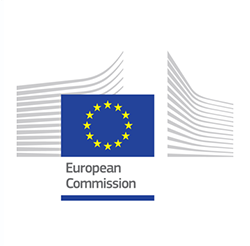Knowledge and innovation: unlocking the potential of food and farming

Today Commissioner Phil Hogan welcomed the fourth Agricultural Knowledge and Innovation Systems (AKIS) report (available soon), putting together the work done for the past three years in this area. During this mandate, a key priority was to further integrate knowledge and innovation in agriculture across the EU.
This report comes in a timely manner, with the future of the common agricultural policy (CAP) being currently discussed with the European Parliament and the Council. The Commission’s proposal includes knowledge and innovation as a cross-cutting objective. It stresses the key role it will play in the future of food and farming by helping farmers and rural communities meet the challenges of today and tomorrow.
Putting together actors working in the field with complementary knowledge has proven beneficial and efficient, with for example CAP-funded Operational Groups of the Agricultural European Innovation Partnership (EIP-AGRI), as well as Horizon 2020 multi-actor projects. These groups bring together researchers, advisors and farmers or foresters, resulting in quicker and better practical use of project results.
Nonetheless, one of the findings highlighted in the report is that national and regional agricultural knowledge and innovation systems are currently not integrated enough. The performance of these systems varies greatly from one Member State to another, and sometimes in different regions of a same Member State. This limits their potential in meeting the challenges ahead. On top of this, even though plentiful, the available knowledge in Europe is fragmented and insufficiently applied in practice.
That is why building stronger agricultural knowledge and innovation systems (AKIS) will be crucial to boost innovation in the sector. By strengthening AKISs, knowledge exchanges and innovation processes will be better structured and help speed up innovation overall. Importantly, it will also avoid duplication of efforts and save costs.
Strengthening these systems should lead to the creation of an ecosystem of agricultural knowledge and innovation in the EU. This will increase even more the EU-added value, while also incentivising cross-border sharing of knowledge and innovation.
To consolidate and ensure the integration of AKISs in all Member States, the post-2020 CAP proposals include the description of these systems’ organisational structure in the national CAP strategic plans. They should also describe how cooperation will be improved for high quality advice, knowledge flows between different actors and innovation support services.
A strong eco-system of AKISs will help the EU‘s agricultural sector face future challenges. It will be important to specifically address the farmers’ needs, leading to a better-adapted and resilient sector.
